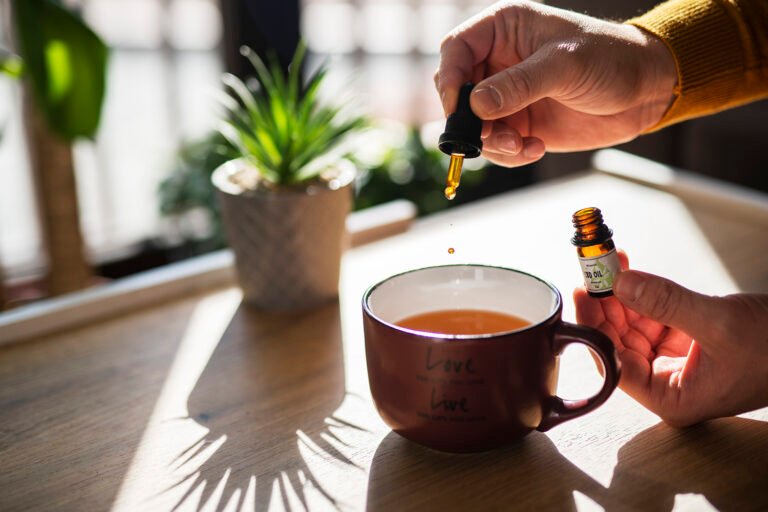What’s the Best CBD for Anti-Inflammatory Relief? Here’s What You Need to Know
Imagine investing in CBD for anti-inflammatory relief, only to feel… well, nothing. Frustrated, right? Don’t worry—you’re not alone. The CBD market is a bit like the ocean—vast, unpredictable, and sometimes full of sharks (aka overhyped products). But fear not! With the right guidance, navigating the CBD waters doesn’t have to feel like you’re blindly throwing a dart.
The truth is, CBD holds real potential for managing inflammation—but you need to know what you’re looking for, how it works, and why transparency matters. Grab your coffee (or tea!) and let’s dig into the science and secrets of finding the best CBD for battling inflammation.
How Does CBD Help with Chronic Inflammation?
First, the science behind why CBD for anti-inflammatory relief can help. CBD, or cannabidiol, interacts with your body’s endocannabinoid system (ECS)—think of it as your internal maintenance crew, working to keep things like mood, sleep, and inflammation in check. CBD doesn’t just mask symptoms like a painkiller; instead, it rebounds your body’s own regulatory systems.
Research suggests CBD reduces inflammation by influencing receptors in the ECS and improving immune responses. Translation? CBD can help calm the fire in your body that often causes persistent pain and discomfort from conditions like arthritis, IBS, or even autoimmune disorders.
But here’s the kicker—not all CBD products are created equal.
The CBD Market Problem No One’s Talking About
Now, here’s where it gets tricky. Walk into any wellness store or browse online, and you’re bombarded with options—CBD oils, gummies, Nano-CBD, you name it. But how do you know what actually works and what’s just overpriced snake oil?
The main challenges you’ll face when searching for the best anti-inflammatory CBD include:
- Regulation Roulette: The CBD market isn’t consistently regulated across states or countries, meaning some products might contain way less CBD than advertised—or worse, harmful contaminants.
- Quality Control Chaos: Without third-party testing, how can you trust what’s in that bottle? Spoiler alert—you can’t.
- Confusing Claims: Pay no mind to exaggerated claims like “This CBD cures everything!” It doesn’t. But it can be useful when backed by science.
- Where’s the Dosage Guide? Nobody tells you how much CBD to take for inflammation. It’s not one-size-fits-all, and finding your “sweet spot” takes trial and error.
Types of CBD and Their Anti-Inflammatory Benefits
Here’s the fun part—choosing which type of CBD product might actually help you. Each form has unique perks (and caveats), so it’s crucial to know the difference.
1. Full-Spectrum CBD
If CBD were a music band, consider full-spectrum CBD the orchestra. It includes all cannabinoids (yes, even a teeny-tiny, legal amount of THC) and terpenes from the hemp plant. These compounds work together in harmony to create what researchers call the entourage effect, enhancing CBD’s anti-inflammatory punch.
👉 Best for: Chronic inflammation warriors looking for the full therapeutic potential.
2. Broad-Spectrum CBD
Think of it as the slightly shy middle sibling of full-spectrum CBD. It includes all the helpful cannabinoids minus THC, making it a great option for those avoiding THC altogether (looking at you, drug tests!).
👉 Best for: People who want broad benefits without THC exposure.
3. CBD Isolate
This is the purist’s dream—just CBD with no extras. While it may lack the entourage effect, its simplicity makes it a good choice for those who need precision.
👉 Best for: Individuals with specific dosing needs or sensitivities to other cannabinoids.
What About New Trends, Like Nano-CBD?
Here’s where it gets exciting! Nano-CBD is a smaller, easily absorbable version of regular CBD. By being broken into tiny particles, Nano-CBD improves bioavailability, meaning your body absorbs and uses it more effectively. This can be a game-changer for anti-inflammatory benefits.
👉 Best for: Those looking for faster, more efficient relief.
How to Choose the Right CBD for You
With so many options out there, choosing the right CBD might feel like picking the perfect avocado—deceptively hard! Here’s how to narrow it down.
1. Check for Third-Party Testing
Always—always—look for products that have been tested by an independent lab. This ensures that what’s on the label matches what’s inside the bottle, and that it’s free from contaminants like pesticides or heavy metals.
2. Start Small, Then Adjust
Since everyone’s body reacts differently, start with low doses (e.g., 10-15mg daily) and gradually increase until you find what works for you. Chronic inflammation often requires higher doses, so don’t be discouraged if you need to adjust upward.
3. Look for Transparency
Stick to brands that provide detailed sourcing information, including where their hemp is grown and how it’s processed. US-based hemp tends to have stricter agricultural standards.
4. Consider Synergistic Blends
Some CBD products combine additional anti-inflammatory ingredients like turmeric, ginger, or Omega-3s. These blends can offer a double whammy against inflammation.
5. Consult an Expert (seriously, do This!)
Before you start popping CBD capsules like Tic Tacs, talk to a healthcare professional—preferably one familiar with CBD. They can help fine-tune your regimen.
Separating Hype from Hope
Here’s the honest truth about CBD for anti-inflammatory relief—it’s not a cure, but it’s an incredibly promising tool. And when used correctly, CBD can offer much-needed relief to those living with chronic inflammation.
Navigating the unregulated CBD market may seem daunting, but with the right information and a little patience, you’re well on your way to experiencing its benefits.
Time to Take Action
Stop letting chronic inflammation call the shots. CBD might just be the relief tool you’ve been searching for—to address your pain, improve your mobility, and reclaim your day.
Not sure where to start? Consult with a healthcare expert to create a personalized CBD plan tailored to your needs. Your body deserves nothing less.
Got questions about CBD? Drop them in the comments, and we’re here to help demystify this amazing compound!
Disclaimer: This article is for informational purposes only and should not be considered medical advice. Always consult with a healthcare professional before starting any new supplement or treatment.


